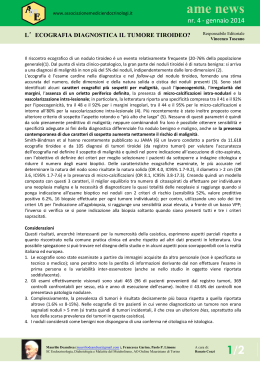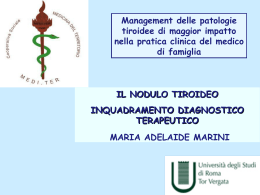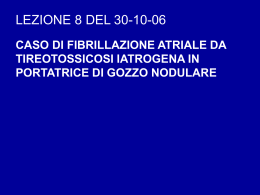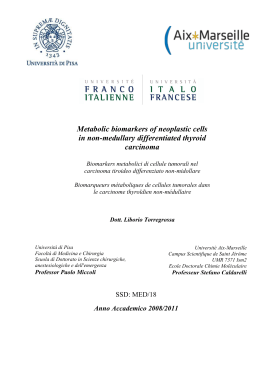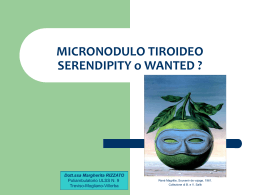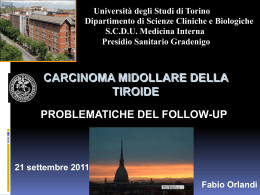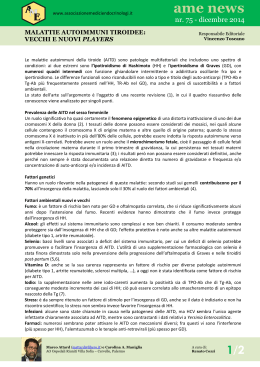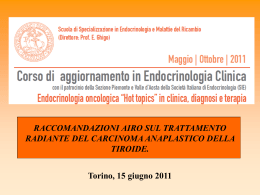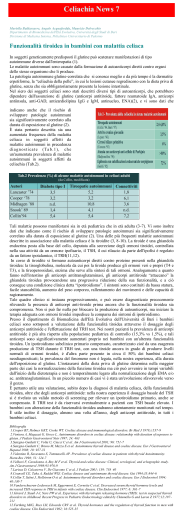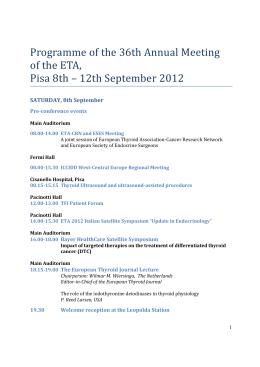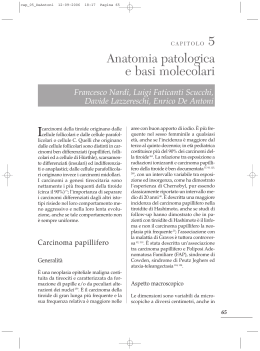Child obesity: obesità infantile Actually: addirittura Ultrasound tests on …: test a ultrasuoni=ecografie effettuate su… To suggest: indicare Writing in…: in un articolo apparso su… Metabolic rate: tasso metabolico To focus: concentrarsi … some suggestions: formulare l’ipotesi che…, ipotizzare Controversial: controverso To add to the puzzle: aumentare i dubbi, le incertezze Condition (med): malattia, disturbo (kidney condition/heart condition) To draw a blank: far fiasco (risultare negativo) Ultrasound findings: risultanze ecografiche Low-grade inflammation state: stato infiammatorio di livello basso/minima flogosi Which has been known to…: si ritiene che… Link: collegamento To uncover: svelare, rivelare Body mass index: indice di massa corporea To reverse: invertire To call for: richiedere Observation: studio To challenge: mettere in discussione Accepted: comunemente accettato Child obesity 'may harm thyroid' Being obese as a child may actually alter the shape of a gland important to growth and metabolism, Italian scientists have said. Ultrasound tests on 186 children suggested their weight might be linked to structural changes in the thyroid. Writing in the Journal of Clinical Endocrinology and Metabolism, the scientists said obesity may be causing thyroid disorders, not the reverse. It is not yet clear whether losing weight could solve the problem. The thyroid is a gland found in the neck which releases hormones which control metabolic rate and child growth. Scientists have focused on the role of thyroid hormones in child obesity, with some suggestions that a problem with the thyroid may be responsible for some cases of overweight children. However, this remains controversial, and the research from the Regional Hospital of Bolzano in Italy is likely to add to the puzzle. The changes in thyroid structure they found were similar to those found in a disease called Hashimoto's thyroiditis, a condition in which the body's own immune system attacks the gland. However, tests for antibodies which would confirm this problem drew a blank. Weight loss Instead, Dr Giorgio Radetti, leading the research, suggested that general inflammation caused by obesity could be responsible. "The ultrasound findings are a bit mysterious, but do suggest the existence of a low-grade inflammation state, which has been known to characterise obesity. "Our study shows that alterations in thyroid function and structure are common in obese children and we may have uncovered the link. "We found an association between body mass index and thyroid hormone levels which suggests that fat excess may have a role in thyroid tissue modification." Although losing weight can lead to the thyroid appearing to work properly in tests, he said that he was not sure that the structural changes found by ultrasound could be reversed this way, and called for more studies to investigate. Professor David Dunger, a paediatric endocrinologist from the University of Cambridge, said that while it was an "interesting observation", it was unlikely to challenge the accepted view that thyroid problems could contribute to obesity, rather than be caused by it. A seguito di una perdita di peso, i risultati degli esami mostrano un funzionamento della tiroide apparentemente normale. Tuttavia, secondo il Dr Radetti, non vi è certezza che i cambiamenti strutturali rivelati dagli esami ecografici possano recedere allo stesso modo, e sono pertanto necessarie ulteriori ricerche. Il professor David Dunger, pediatra endocrinologo dell’Università di Cambridge, ha dichiarato che, pur trattandosi di uno studio interessante, è poco probabile che possa mettere in discussione l’opinione comunemente accettata che le disfunzioni tiroidee possano contribuire all’obesità, piuttosto che esserne la conseguenza.
Scaricare
